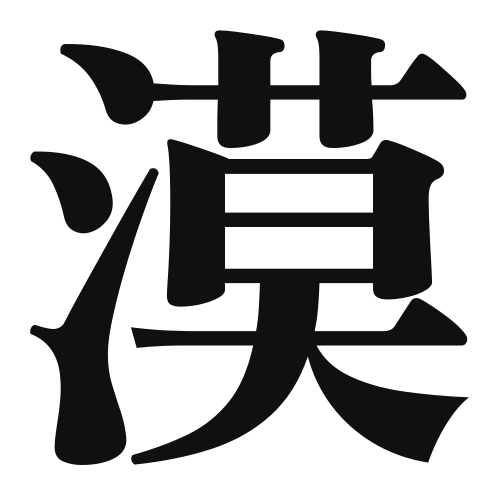1. Overview of Meaning
The kanji “漠” (baku) generally means “vast” or “desolate.” It often conveys a sense of emptiness or a wide, open space, such as a desert or a barren landscape.
2. Formation and Radical
Formation of the Kanji: The kanji “漠” is a phonetic-ideographic character (形声文字). It combines the water radical (氵) on the left, which relates to liquid or water, and the phonetic component “莫” (baku) on the right, which contributes to its pronunciation.
Radical: The radical of “漠” is 氵, which is associated with water and fluidity.
3. Examples of Usage
Common Words and Phrases: “漠然” (bakuzan) meaning “vaguely” or “indistinctly,” and “漠視” (baku-shi) meaning “to overlook” or “to disregard.”
Example Sentence in Daily Conversation: “彼は漠然とした不安を抱えている。” (Kare wa bakuzan to shita fuan o kakaete iru.) – “He is harboring a vague sense of anxiety.”
4. Synonyms and Antonyms
Similar Kanji: “広” (hiro) meaning “wide” or “broad” has a similar connotation of expansiveness but does not carry the same sense of emptiness as “漠.”
Antonyms: “密” (mitsu) meaning “dense” or “thick” represents the opposite of “漠,” indicating a lack of space or openness.
5. Cultural and Historical Background
Relation to Japanese Culture: The concept of “漠” is often associated with the vastness of nature, reflecting the Japanese appreciation for open landscapes and the beauty of desolation.
Proverbs and Idioms: The phrase “漠然とした” (bakuzan to shita) is used to describe a state of being unclear or uncertain, often in philosophical or reflective contexts.
